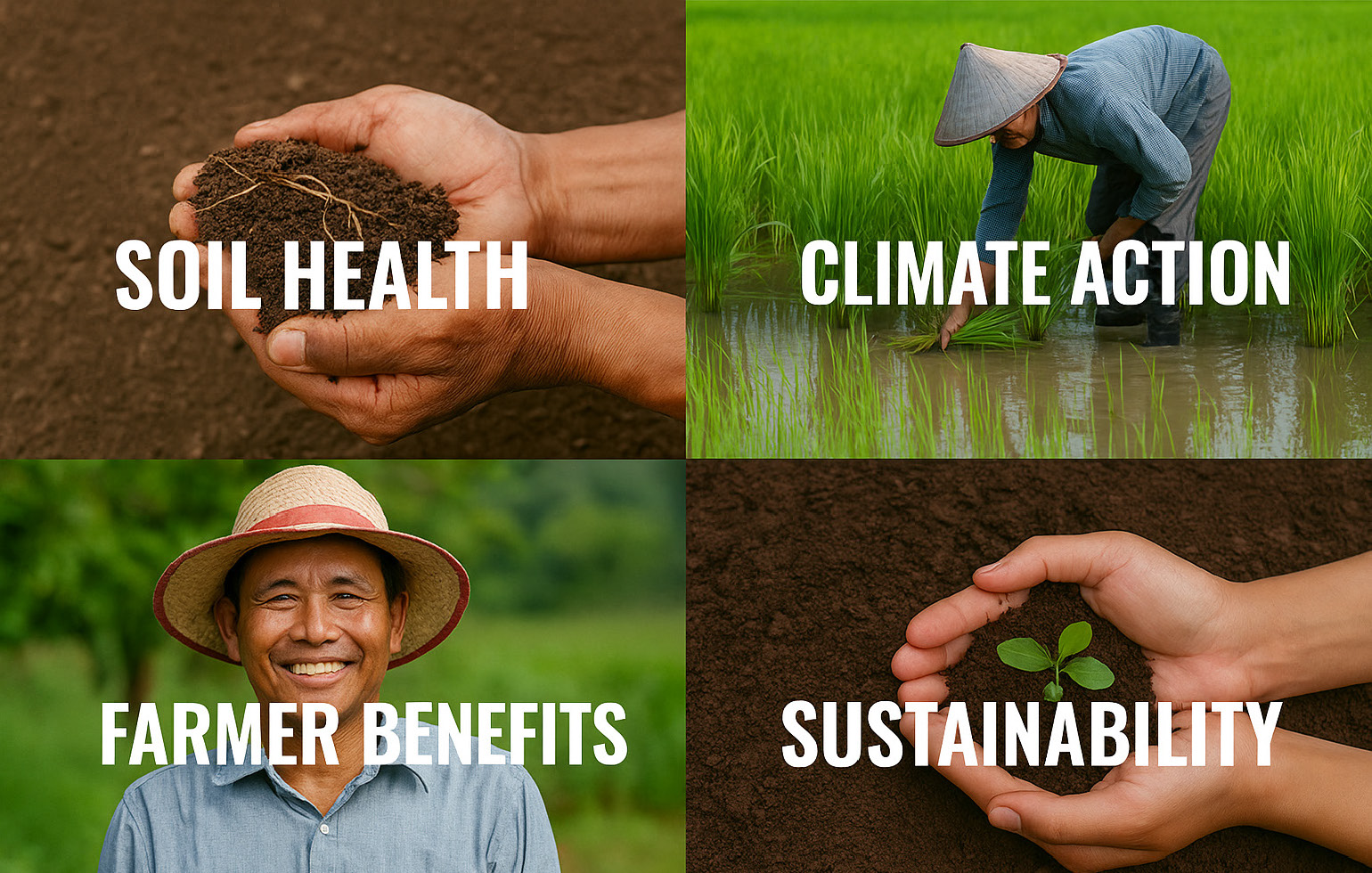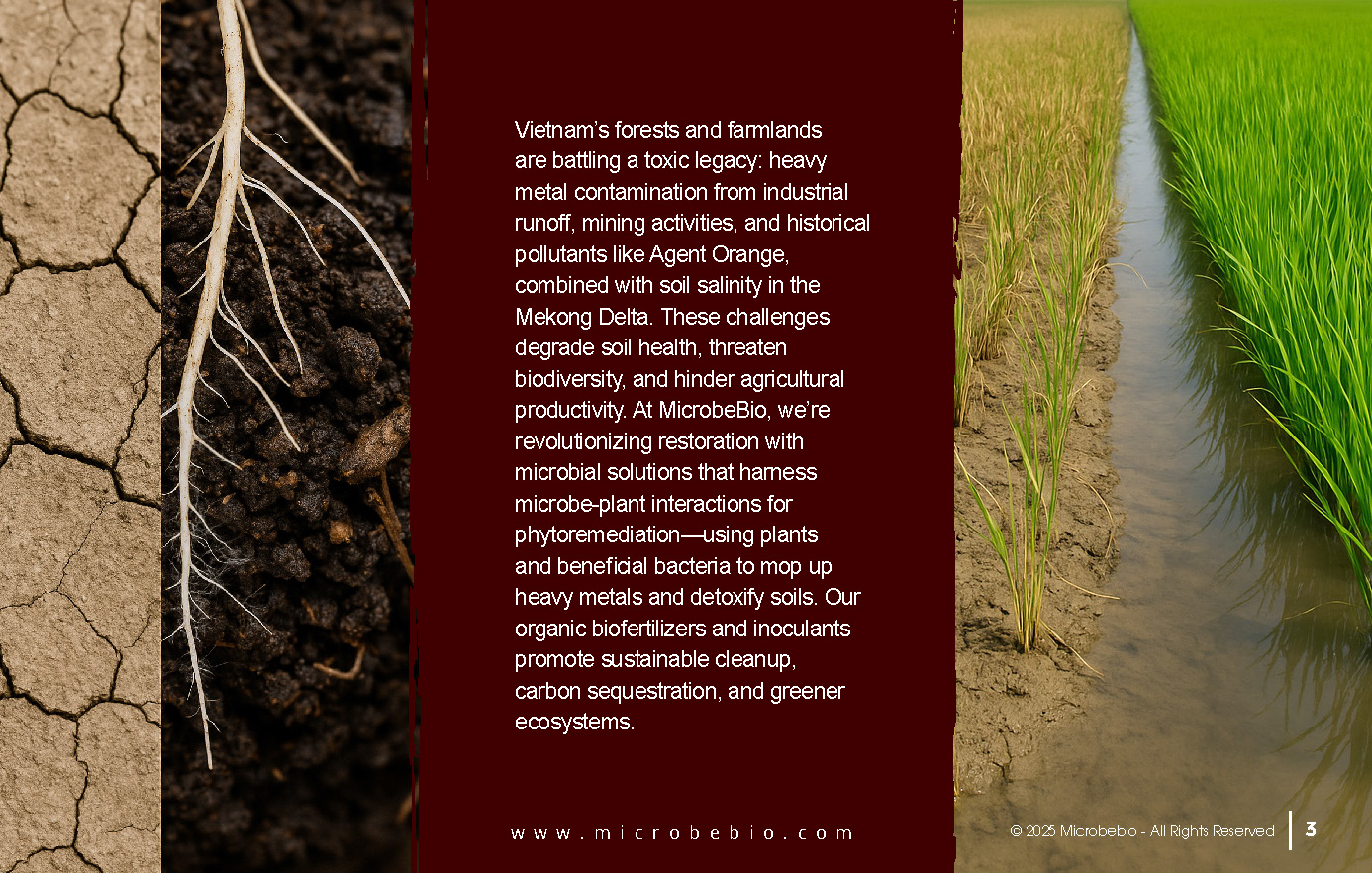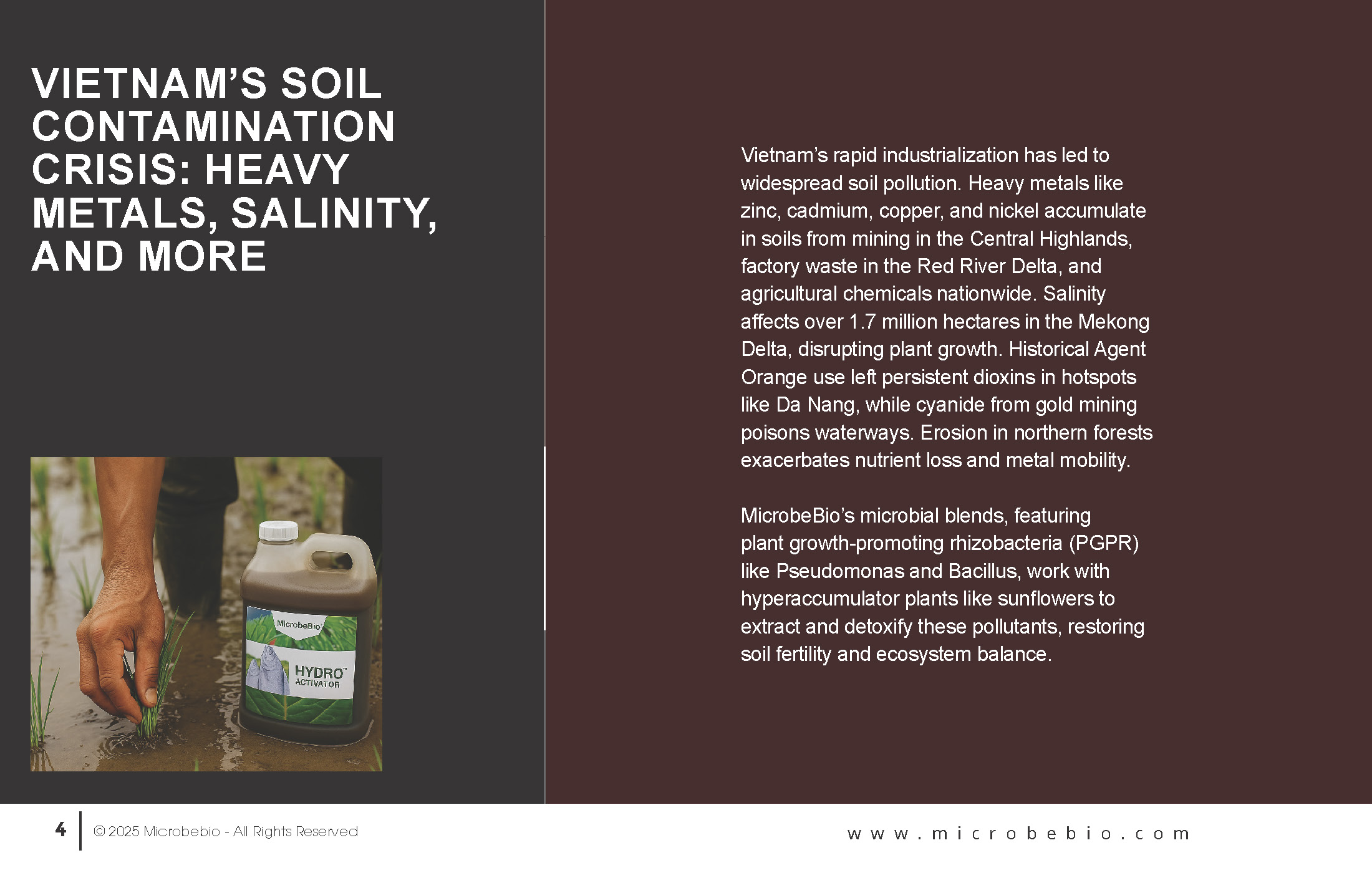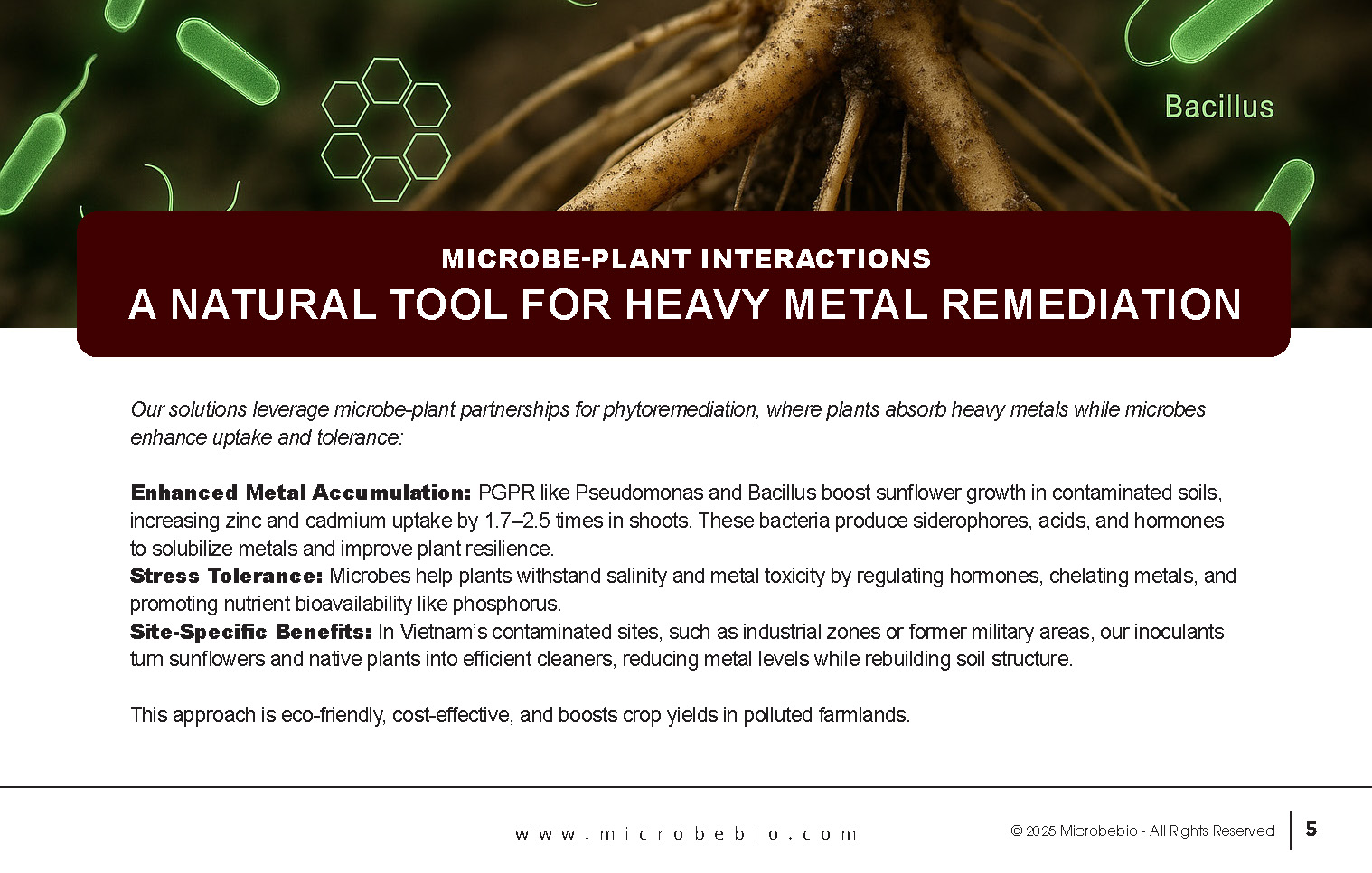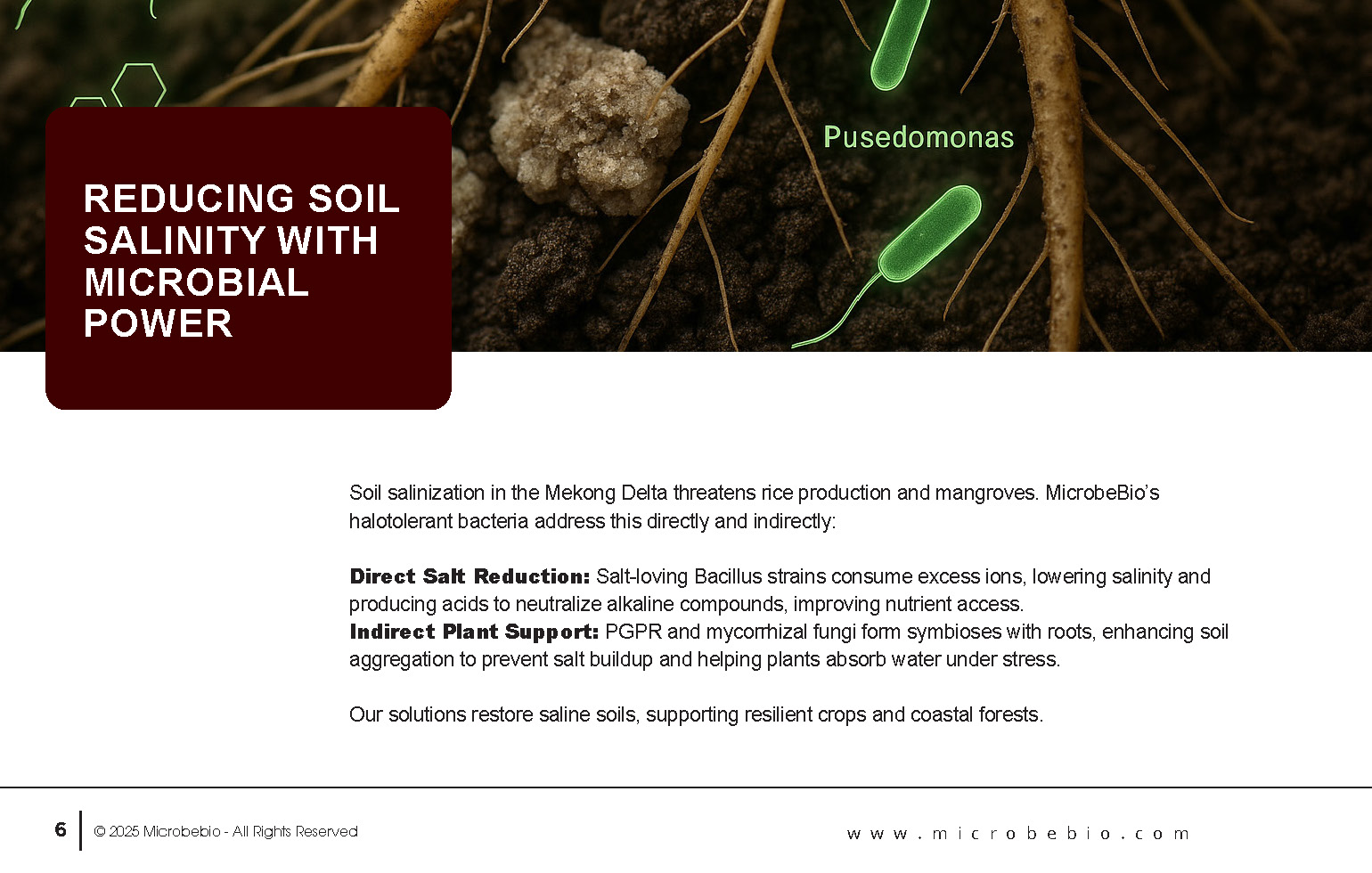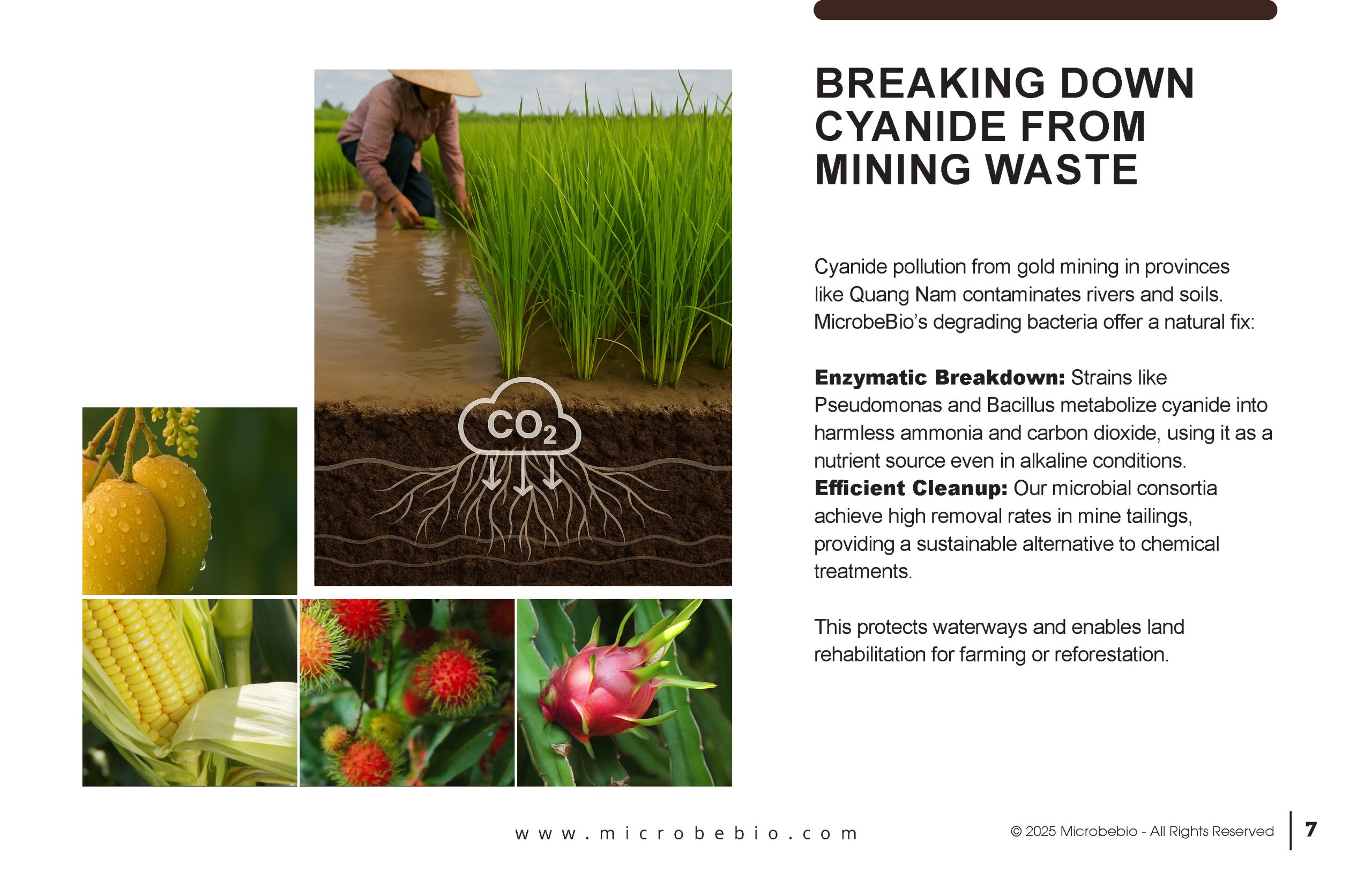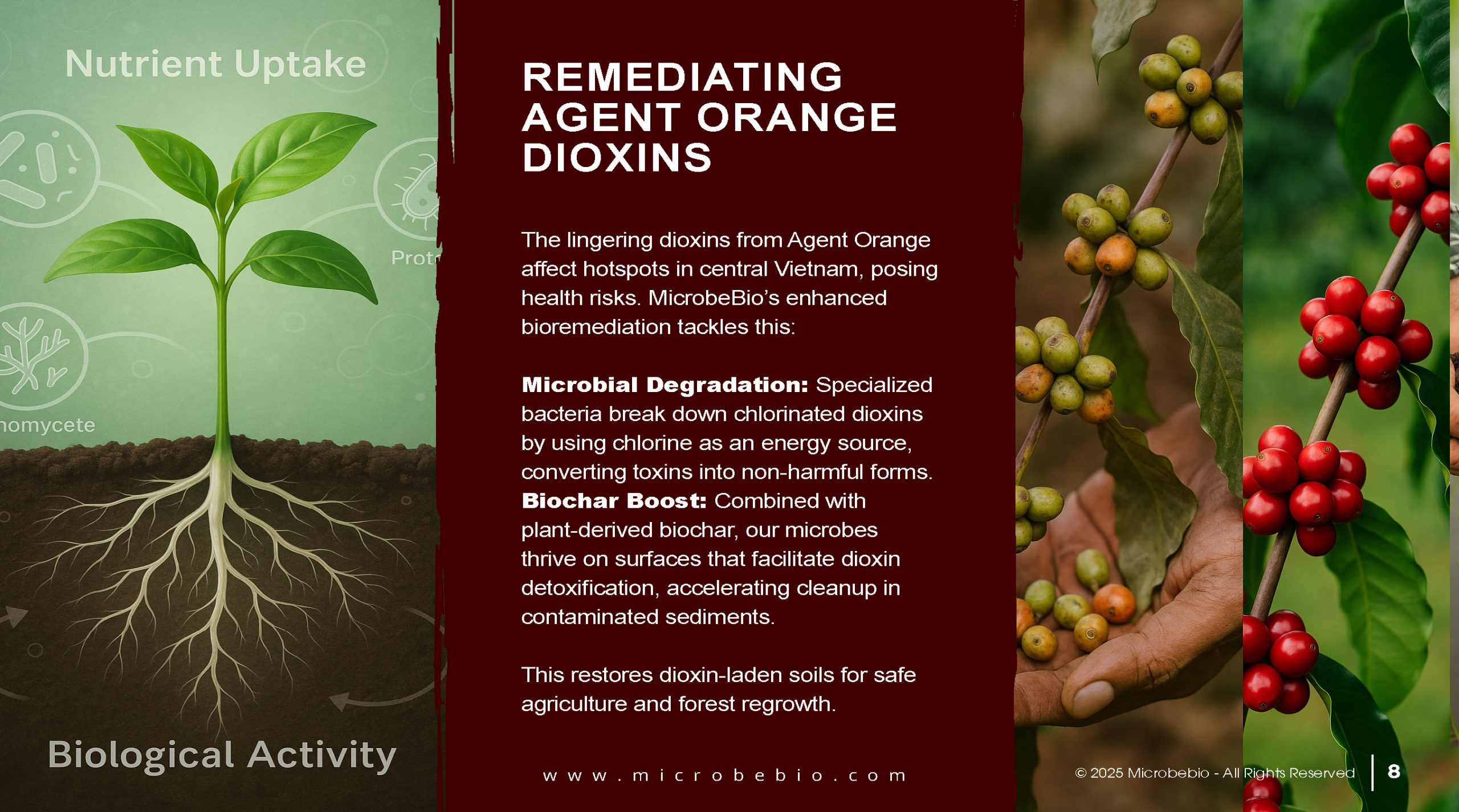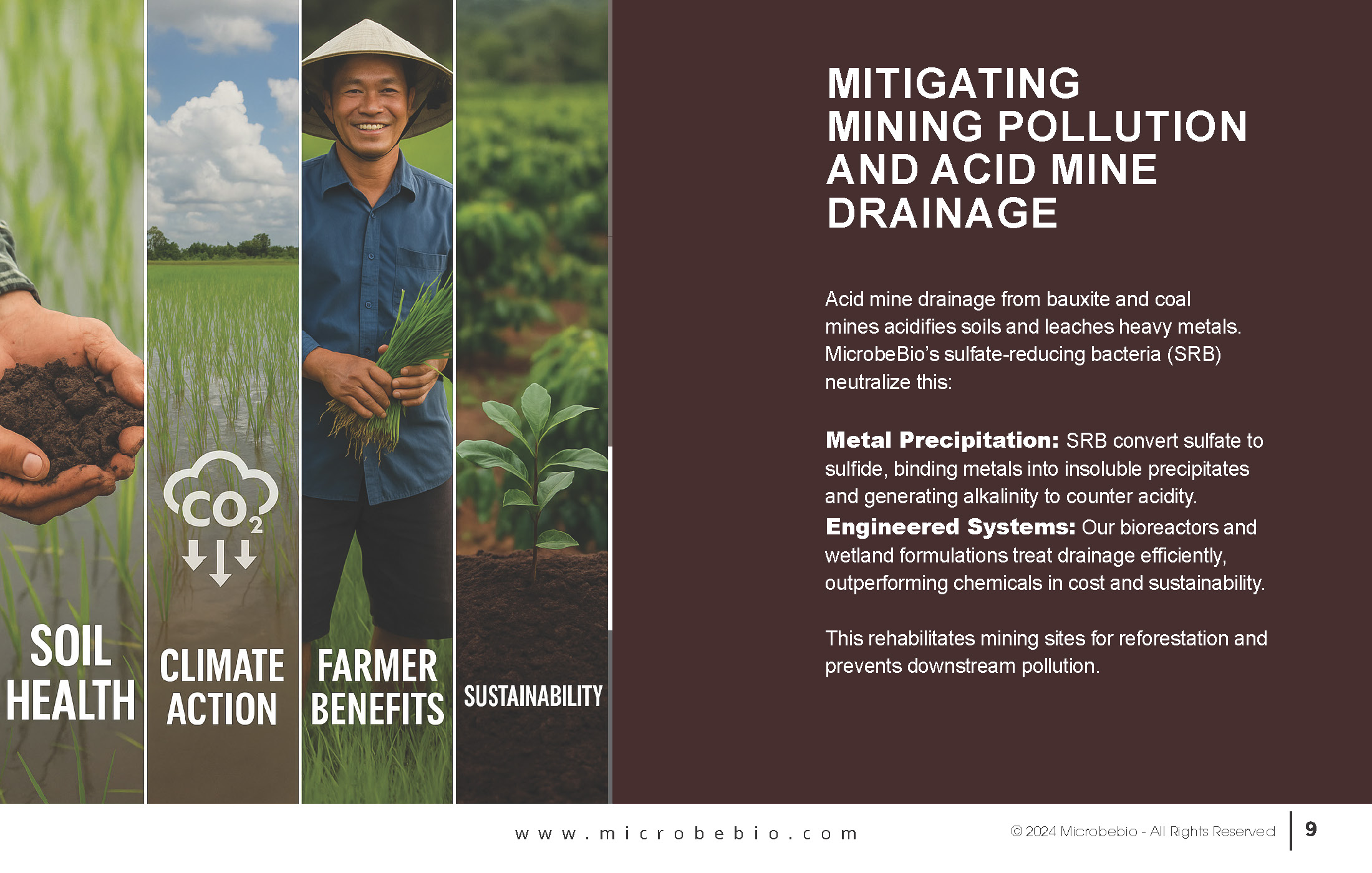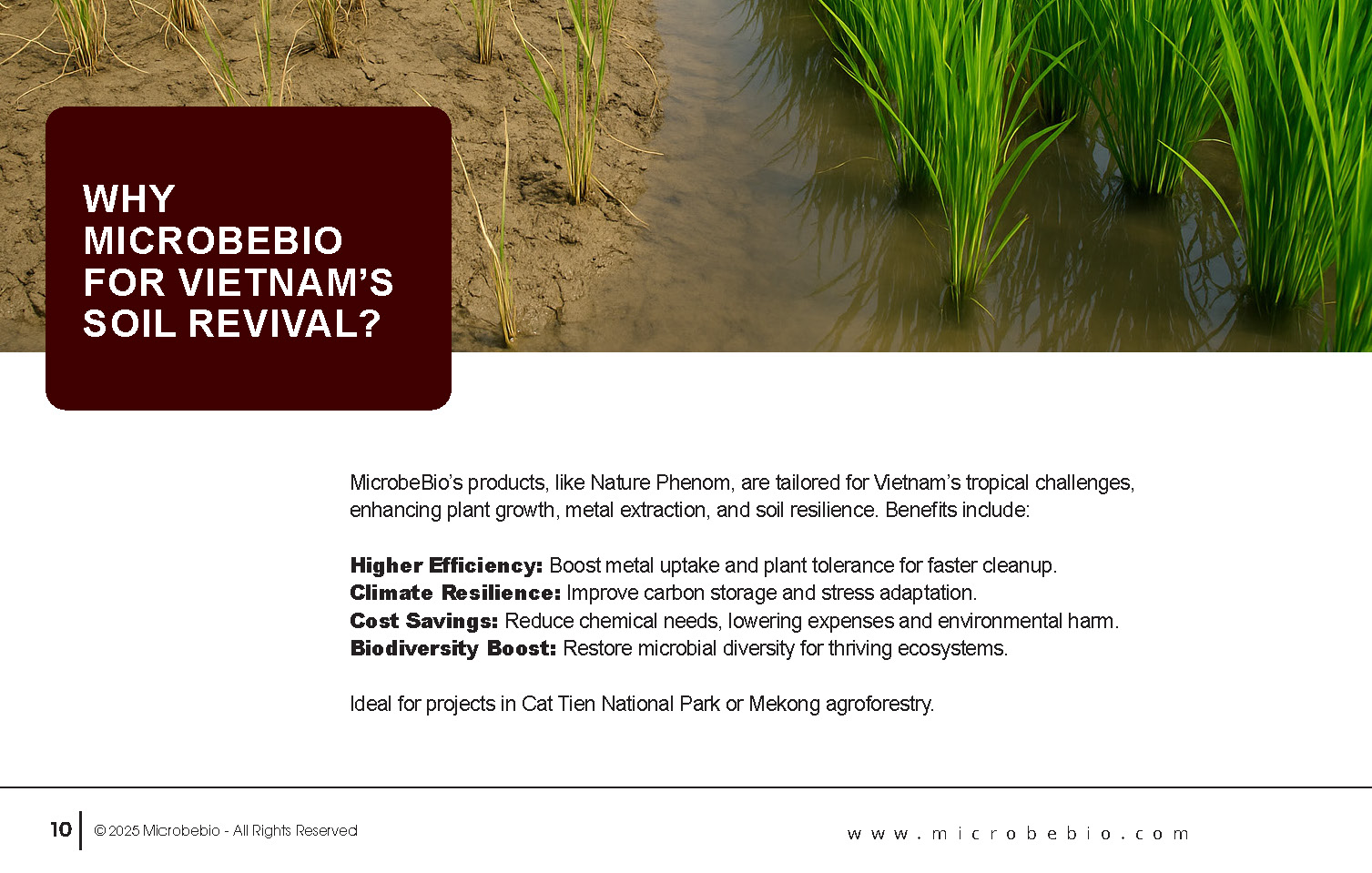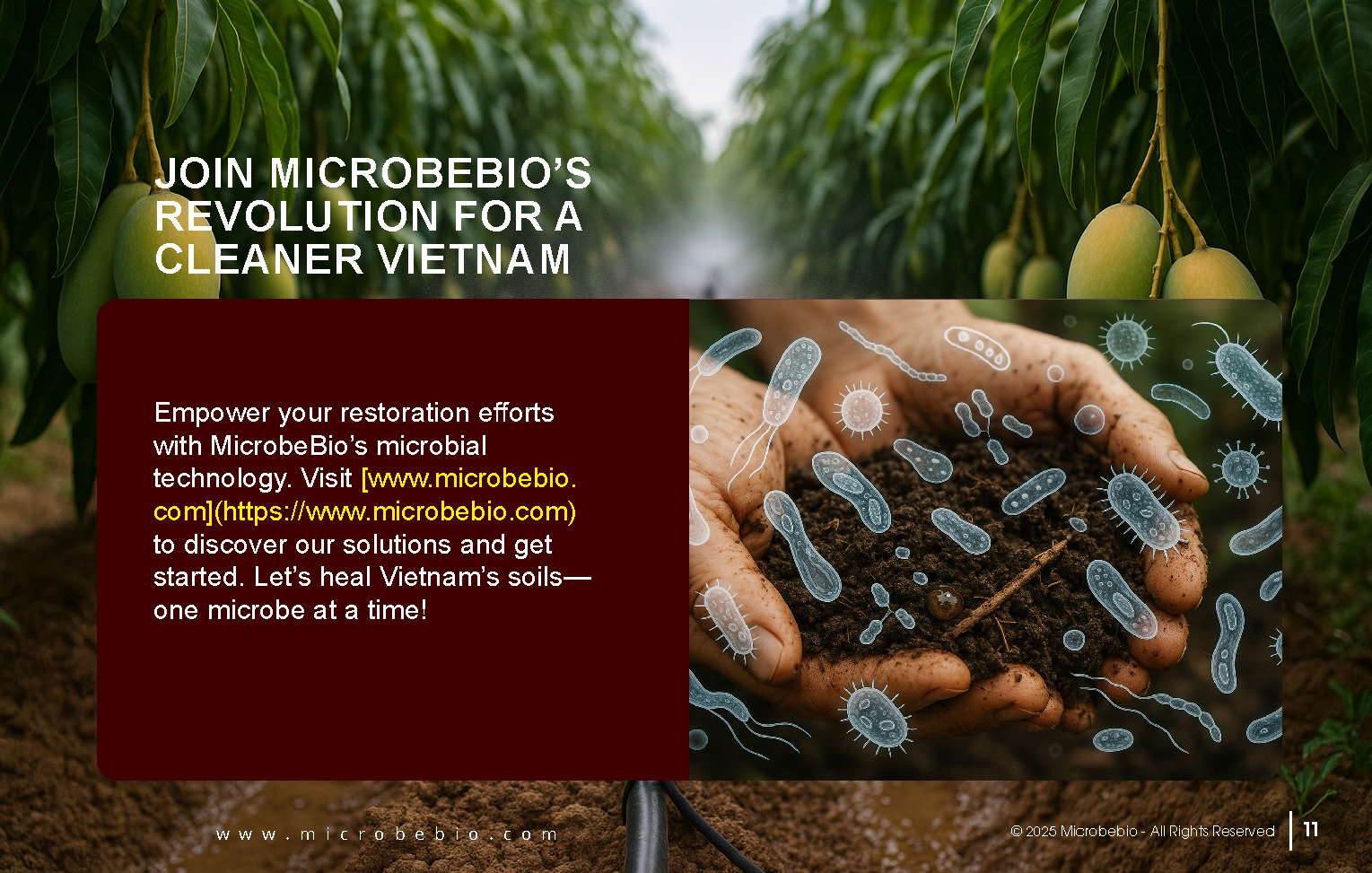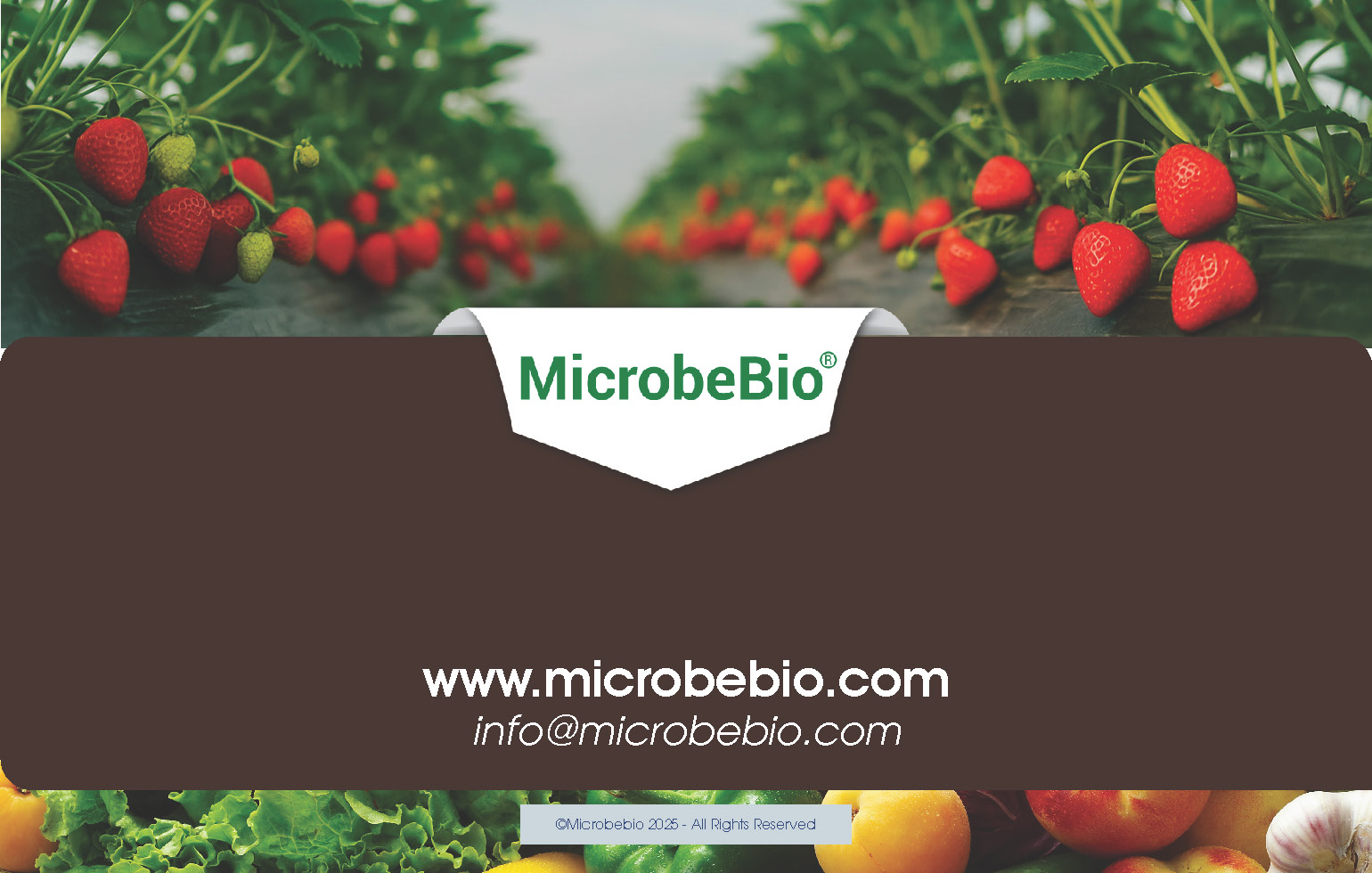Reviving Vietnam- Forests with MicrobeBio-Sustainable Soil Solutions for Heavy Metal Cleanup and Bioremediation
Vietnam’s forests and farmlands are battling a toxic legacy: heavy metal contamination from industrial runoff, mining activities, and historical pollutants like Agent Orange, combined with soil salinity in the Mekong Delta. These challenges degrade soil health, threaten biodiversity, and hinder agricultural productivity. At MicrobeBio, we’re revolutionizing restoration with microbial solutions that harness microbe-plant interactions for phytoremediation—using plants and beneficial bacteria to mop up heavy metals and detoxify soils. Our organic biofertilizers and inoculants promote sustainable cleanup, carbon sequestration, and greener ecosystems. #SustainableFarming #SoilRemediation #Bioremediation #VietnamEnvironment #ClimateAction
Vietnam’s Soil Contamination Crisis: Heavy Metals, Salinity, and More
Vietnam’s rapid industrialization has led to widespread soil pollution. Heavy metals like zinc, cadmium, copper, and nickel accumulate in soils from mining in the Central Highlands, factory waste in the Red River Delta, and agricultural chemicals nationwide. Salinity affects over 1.7 million hectares in the Mekong Delta, disrupting plant growth. Historical Agent Orange use left persistent dioxins in hotspots like Da Nang, while cyanide from gold mining poisons waterways. Erosion in northern forests exacerbates nutrient loss and metal mobility.
MicrobeBio’s microbial blends, featuring plant growth-promoting rhizobacteria (PGPR) like Pseudomonas and Bacillus, work with hyperaccumulator plants like sunflowers to extract and detoxify these pollutants, restoring soil fertility and ecosystem balance. #HeavyMetalCleanup #VietnamAgriculture #EcoRestoration
Microbe-Plant Interactions: A Natural Tool for Heavy Metal Remediation
Our solutions leverage microbe-plant partnerships for phytoremediation, where plants absorb heavy metals while microbes enhance uptake and tolerance:
- Enhanced Metal Accumulation: PGPR like Pseudomonas and Bacillus boost sunflower growth in contaminated soils, increasing zinc and cadmium uptake by 1.7–2.5 times in shoots. These bacteria produce siderophores, acids, and hormones to solubilize metals and improve plant resilience.
- Stress Tolerance: Microbes help plants withstand salinity and metal toxicity by regulating hormones, chelating metals, and promoting nutrient bioavailability like phosphorus.
- Site-Specific Benefits: In Vietnam’s contaminated sites, such as industrial zones or former military areas, our inoculants turn sunflowers and native plants into efficient cleaners, reducing metal levels while rebuilding soil structure.
This approach is eco-friendly, cost-effective, and boosts crop yields in polluted farmlands. #Phytoremediation #PGPR #SustainableVietnam
Reducing Soil Salinity with Microbial Power
Soil salinization in the Mekong Delta threatens rice production and mangroves. MicrobeBio’s halotolerant bacteria address this directly and indirectly:
- Direct Salt Reduction: Salt-loving Bacillus strains consume excess ions, lowering salinity and producing acids to neutralize alkaline compounds, improving nutrient access.
- Indirect Plant Support: PGPR and mycorrhizal fungi form symbioses with roots, enhancing soil aggregation to prevent salt buildup and helping plants absorb water under stress.
Our solutions restore saline soils, supporting resilient crops and coastal forests. #SoilSalinity #MekongDelta #GreenAgriculture
Breaking Down Cyanide from Mining Waste
Cyanide pollution from gold mining in provinces like Quang Nam contaminates rivers and soils. MicrobeBio’s degrading bacteria offer a natural fix:
- Enzymatic Breakdown: Strains like Pseudomonas and Bacillus metabolize cyanide into harmless ammonia and carbon dioxide, using it as a nutrient source even in alkaline conditions.
- Efficient Cleanup: Our microbial consortia achieve high removal rates in mine tailings, providing a sustainable alternative to chemical treatments.
This protects waterways and enables land rehabilitation for farming or reforestation. #CyanideRemediation #MiningPollution #EcoMining
Remediating Agent Orange Dioxins
The lingering dioxins from Agent Orange affect hotspots in central Vietnam, posing health risks. MicrobeBio’s enhanced bioremediation tackles this:
- Microbial Degradation: Specialized bacteria break down chlorinated dioxins by using chlorine as an energy source, converting toxins into non-harmful forms.
- Biochar Boost: Combined with plant-derived biochar, our microbes thrive on surfaces that facilitate dioxin detoxification, accelerating cleanup in contaminated sediments.
This restores dioxin-laden soils for safe agriculture and forest regrowth. #AgentOrangeCleanup #VietnamLegacy #BioremediationSolutions
Mitigating Mining Pollution and Acid Mine Drainage
Acid mine drainage from bauxite and coal mines acidifies soils and leaches heavy metals. MicrobeBio’s sulfate-reducing bacteria (SRB) neutralize this:
- Metal Precipitation: SRB convert sulfate to sulfide, binding metals into insoluble precipitates and generating alkalinity to counter acidity.
- Engineered Systems: Our bioreactors and wetland formulations treat drainage efficiently, outperforming chemicals in cost and sustainability.
This rehabilitates mining sites for reforestation and prevents downstream pollution. #AcidMineDrainage #MiningRemediation #SustainableMining
Why MicrobeBio for Vietnam’s Soil Revival?
MicrobeBio’s products, like Nature Phenom, are tailored for Vietnam’s tropical challenges, enhancing plant growth, metal extraction, and soil resilience. Benefits include:
- Higher Efficiency: Boost metal uptake and plant tolerance for faster cleanup.
- Climate Resilience: Improve carbon storage and stress adaptation.
- Cost Savings: Reduce chemical needs, lowering expenses and environmental harm.
- Biodiversity Boost: Restore microbial diversity for thriving ecosystems.
Ideal for projects in Cat Tien National Park or Mekong agroforestry. #ForestRevival #MicrobeBio #GreenVietnam
Join MicrobeBio’s Revolution for a Cleaner Vietnam
Empower your restoration efforts with MicrobeBio’s microbial technology. Visit [www.microbebio.com](https://www.microbebio.com) to discover our solutions and get started. Let’s heal Vietnam’s soils—one microbe at a time! #SoilHealth #BiotechInnovation #VietnamSustainability
© 2025 MicrobeBio. All rights reserved.

